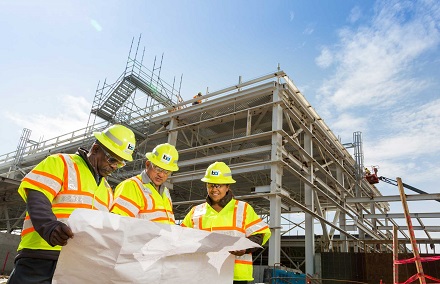The construction industry is a cornerstone of economic development, responsible for creating the infrastructure that supports communities, businesses, and overall societal advancement. However, construction projects often face a myriad of challenges that can impact timelines, budgets, and the quality of the finished product. Addressing these construction problems is crucial for ensuring project success and maintaining the industry’s integrity. Here, we explore the significance of tackling these issues and offer insights into common construction problems and their solutions.
Importance of Addressing Construction Problems
- Project Efficiency and Timeliness: Construction delays are a common issue that can arise from various problems such as labor shortages, inclement weather, and supply chain disruptions. Delays not only extend the project timeline but also increase costs. Effective management and resolution of these problems ensure that projects are completed on time, maintaining schedules and budgets.
- Financial Management: Unresolved construction problems often lead to cost overruns. Issues such as design errors, unforeseen site conditions, and material shortages can escalate expenses. Proactively addressing these problems through detailed planning and risk management helps keep projects within budget, ensuring financial viability.
- Quality Assurance: The quality of construction work is paramount for the safety and durability of buildings and infrastructure. Problems such as poor workmanship, inadequate materials, and design flaws compromise structural integrity. Addressing these issues ensures that the final product meets the required standards and regulations, safeguarding the well-being of occupants and users.
- Legal and Regulatory Compliance: Construction projects must comply with a range of legal and regulatory requirements. Failure to address construction problems can result in violations, leading to legal disputes, fines, and project shutdowns. Ensuring compliance through diligent problem-solving protects the project from legal repercussions and enhances reputation.
- Stakeholder Satisfaction: Construction projects typically involve multiple stakeholders, including clients, contractors, investors, and the community. Problems that affect project timelines, costs, and quality can lead to dissatisfaction and loss of trust. Addressing these issues fosters better relationships and ensures stakeholder confidence and satisfaction.
Common Construction Problems and Solutions
- Design Flaws: Design flaws can cause significant issues during the construction phase, leading to delays and additional costs for redesign and rework. Collaborative planning sessions involving architects, engineers, and contractors during the design phase can help identify and rectify potential flaws early on.
- Inadequate Project Planning: Poor project planning can result in resource shortages, scheduling conflicts, and budget overruns. Employing robust project management tools and techniques, such as Gantt charts and critical path method (CPM) analysis, can enhance planning accuracy and efficiency.
- Labor Shortages: Labor shortages can stall construction progress and impact quality. Investing in workforce training programs and adopting modern construction technologies like prefabrication and automation can mitigate labor dependency and enhance productivity.
- Supply Chain Disruptions: Supply chain disruptions can lead to material shortages and project delays. Establishing strong relationships with multiple suppliers and maintaining a buffer stock of critical materials can help manage supply chain risks.
- Safety Issues: Construction sites are inherently hazardous, and safety issues can lead to accidents and project stoppages. Implementing stringent safety protocols, regular training sessions, and continuous monitoring can create a safer work environment and reduce accident rates.
Conclusion
Addressing construction problems is not merely about resolving issues as they arise; it is about proactive management and strategic planning to prevent problems before they occur. By focusing on efficient project planning, quality assurance, compliance, and stakeholder satisfaction, the construction industry can overcome its challenges and continue to build the infrastructure that supports our society. Effective problem-solving in construction is essential for delivering projects that are safe, on time, within budget, and of the highest quality, thereby contributing to the sustainable growth and development of communities worldwide.

